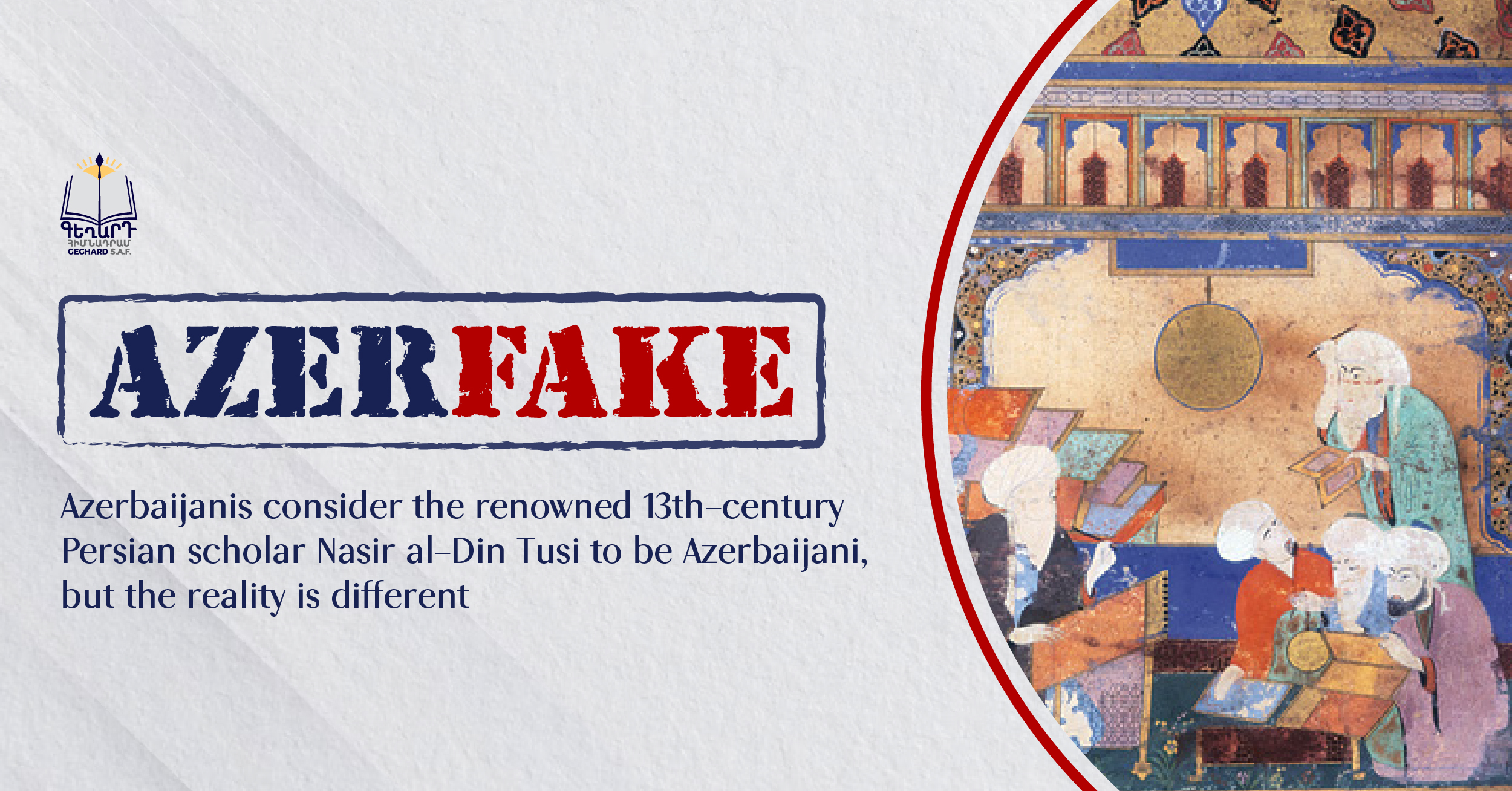“GEGHARD”
SCIENTIFIC ANALYTICAL
FOUNDATION
2026
2026
2024-12-18

Nasreddin Tusi (Nasir al-Din al-Tusi) was a renowned 13th-century Persian polymath, philosopher, mathematician, astronomer, theologian, poet, and translator. He served as the personal advisor and scribe to Hulagu Khan. Under his leadership, the Maragha Observatory was constructed, and star charts (the “Ilkhanic Tables”) were compiled. He also translated and commented on works related to Greek astronomy and other sciences. Approximately 150 treatises and letters by him have survived, of which 25 are written in Persian and the others in Arabic. These works cover topics such as astronomy, geometry, geology, medicine, ethics, and poetry. It is no coincidence that he has been described as the “king of the sciences of the countries,” a title engraved on his tombstone.
It is hard to imagine how this famous Persian scholar could be considered a representative of the people who would only be called "Azerbaijani" in the early 20th century.